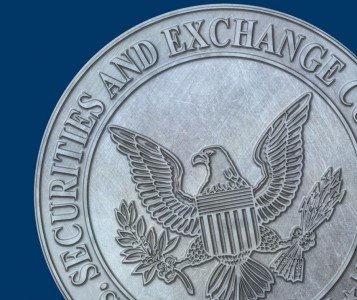The SEC has just about doubled the dimensions of its cryptocurrency enforcement unit. How will this affect the crypto global?
The U.S. Securities and Alternate Fee (SEC) announced on Might Three that it is going to build up the dimensions of its Crypto Property and Cyber Unit inside its Department of Enforcement.
The SEC created its Crypto Property and Cyber Unit in 2017. Thus far, it has introduced ahead greater than 80 circumstances and taken in additional than $2 billion in consequences.
The department specializes in regulating preliminary choices, crypto exchanges, crypto lending, DeFi platforms, non-fungible tokens (NFTs), and stablecoins.
Now, the SEC has added 20 new positions, expanding the capability of the department to 50 puts. The growth signifies that the dimensions of the SEC’s enforcement department will build up nearly two-fold. The brand new hires might be tasked with protective cryptocurrency traders from fraud and extra common dangers of on-line making an investment.
SEC Chair Gary Gensler mentioned that, because the crypto marketplace draws extra traders, it’s “an increasing number of necessary to commit extra sources to protective [investors].” He added that via expanding the dimensions of its enforcement unit, the SEC will change into higher ready to use laws to platforms and products and services that interact in wrongdoing.
Gurbir S. Grewal, Director of the SEC’s Department of Enforcement, famous that “crypto markets have exploded in recent times” and mentioned that “retail traders [are] bearing the brunt of abuses.” Certainly, data elsewhere presentations that crypto robbery in 2021 amounted to $14 billion, regardless that a few of the ones thefts affected tasks reasonably than folks.
In the meantime, one member of the SEC—Commissioner Hester Peirce—has argued against the regulator’s newest enlargement. In a while after the announcement, she famous that the SEC is essentially a law company, “now not an enforcement company.”
Information of the growth comes within the wake of a number of contemporary high-profile movements from the SEC, a lot of which focused fraud inside the crypto and blockchain trade.
Last September, the SEC charged the founding father of BitConnect with running a virtual asset providing that defrauded traders of $2 billion between 2017 and 2018.
In March 2022, it charged two siblings with fraud amounting to $124 million involving a cryptocurrency referred to as Ormeus Coin. In January 2022, the SEC charged an Australian citizen with fraud after elevating $40 million thru a crypto ICO referred to as Crowd Gadget.
In December 2021, the regulator charged a Latvian citizen with defrauding customers of $7 million in two virtual asset choices thru a platform referred to as Denaro.
In November 2021, it charged a California resident with fraudulently elevating $3.6 billion in Bitcoin thru two platforms referred to as MyMicroProfits.com and Social Profimatic.
Along with focused on fraud, the SEC has penalized reputable crypto firms. In February, the preferred crypto lending corporate BlockFi agreed to pay $100 million in consequences whilst additionally pursuing registration that may permit it to proceed running.
Regardless of the SEC’s huge collection of enforcement movements, the regulator has made some permissive selections that experience allowed expansion within the crypto sector.
The SEC started to approve Bitcoin futures ETFs remaining fall. This choice allowed asset control firms like Valkyrie, ProShares, and VanEck to supply new funding cars. In April 2022, a fourth futures ETF from Teucrium used to be licensed as neatly.
Even though the SEC has now not but licensed a Bitcoin spot ETF, some imagine that that is prone to happen within the close to long run. Corporations comparable to Grayscale are pushing for approval and at the moment are gaining support from the wider monetary group.
The SEC additionally participated within the President’s Operating Workforce on Monetary Markets (PWG) in November 2021, which had a partial center of attention on stablecoins. Even though that consultation may just grant the SEC some powers over stablecoins, the PWG jointly instructed for bank-like law of stablecoins—reputedly a permissive stance.
In the end, Commissioner Hester Peirce has traditionally spoken out towards overzealous crypto enforcement and driven for a extra liberal coverage. Lately, she has urged that stablecoin issuers may well be regulated like banks, contested rules that would negatively impact DeFi platforms, and put ahead a “safe harbor” plan taking into consideration sooner construction of crypto tokens.
With such a lot of variables in play, it’s unclear whether or not the SEC’s newly employed enforcers will make the crypto setting extra restrictive general, or whether or not the SEC will broaden a quite permissive regulatory construction for the crypto trade.
Disclaimer: knowledge contained herein is equipped with out taking into account your individual cases, subsequently will have to now not be construed as monetary recommendation, funding advice or an be offering of, or solicitation for, any transactions in cryptocurrencies.









![Methods to Purchase DeFi Pulse Index on CoinStats [The Ultimate Guide 2022]](https://bitrrency.com/wp-content/uploads/2022/05/DeFi_Pulse_og-100x70.png)

